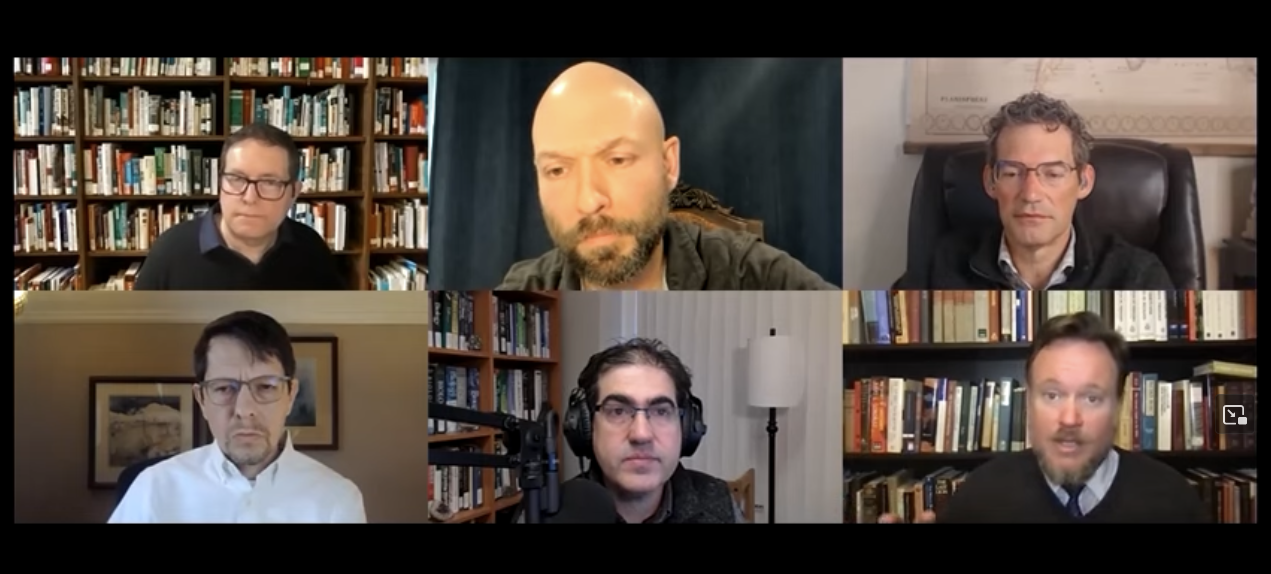


Evolution’s Demigods: Reviewing the Tour/Cronin Debate
Do biologists give too much credit to natural selection and self-organization? What are the limits of a materialist approach to science? On this ID The Future, we bring you the second half of a panel discussion reviewing the recent debate between Rice University chemistry professor Dr. James Tour and University of Glasgow professor of chemistry Dr. Lee Cronin. In November 2023, Dr. Tour and Dr. Cronin participated in a roundtable debate on origin-of-life studies at Harvard University with a live audience of Harvard faculty and guests. Even if you haven’t seen the debate yet, you’ll get valuable insight into the state of origin-of-life research from this panel discussion, featuring three of our own: scientist and attorney Casey Luskin, physicist Brian Miller, and Center for Science and Culture Senior Fellow Dr. Stephen Dilley. It also featured Arizona State University Professor of Philosophy Owen Anderson. The second half of the conversation begins where Part 1 left off: with a critique of the seemingly limitless power attributed to natural selection. In the debate, Dr. Cronin called natural selection “the force that produces our stars.” Dr. Miller explains why natural selection wields so much power for scientists like Cronin: “What a lot of origin-of-life people do is they talk about natural selection as a demigod with creative agency. That’s how they rationalize away the evidence for design.” The panel also discusses how intelligent design is a legitimate threat to materialist science, and how Dr. Tour’s challenge is impacting the origin-of-life research community. They conclude with the reminder that a mind-first view of the natural world can not only help us personally, it can help society create better solutions for living. This discussion was recorded by the Kirkwood Center and hosted by Kirkwood president Anthony Costello and vice-president Lenny Esposito. We thank the Kirkwood Center for permission to share it. This is Part 2 of a two-part discussion. Listen to Part 1 if you missed it. Dig Deeper Listen to Dr. Stephen Meyer interview Dr. James Tour about the origin-of-life debate:

Debate Review: Jim Tour vs Lee Cronin at Harvard

A Philosopher’s Defense of Intelligent Design

Bayesian Probability and Intelligent Design: A Beginner’s Guide

Behe Answers the Best Objections to Irreducible Complexity and ID, Pt. 1
On today’s ID the Future Lehigh University biologist Michael Behe addresses what Philosophy for the People host Pat Flynn considers some of the best objections to Behe’s central intelligent design argument. As far back as the 1996 book Darwin’s Black Box, Behe has argued that certain features in biology are irreducibly complex. That is, they require numerous essential parts, each carefully fitted to its task and integrated with the other parts, in order for the molecular machine or system to function at all. Two examples are the bacterial flagellum motor and the blood clotting cascade. Such systems are, in Behe’s words, irreducibly complex and could not have arisen through any blind and gradual evolution process. The better explanation for their origin: intelligent design. Since Darwin’s Black Box became a bestseller a generation ago, Behe has attracted opponents in places high and low. Following the philosopher Alvin Plantinga, Flynn says that some of the attacks on Behe have been hysterical, but some have been more thoughtful. In this series Flynn focuses the discussion on what he regards as some of the more substantive and interesting objections, beginning with one from a noted philosopher who is partly sympathetic to Behe’s work, Plantinga himself. Behe gamely responds. This episode is used by permission of Pat Flynn. To see Behe’s responses to common and key objections collected in a single book book, get your copy of his newest book, A Mousetrap for Darwin: Michael J. Behe Answers His Critics.

Stephen Meyer Defends His New Book to Cosmologist Brian Keating, Pt. 3
Today’s ID the Future concludes the conversation between Stephen Meyer, author of the newly released USA Today bestseller Return of the God Hypothesis, and UC-San Diego physicist Brian Keating. In part three they discuss divine extravagance and the question of why, if the universe was made for humans, did it take so long before humans came onto the scene? From there Meyer turns to the evidence for intelligent design from the digital information embedded in DNA and RNA. Is this book just another intelligent design argument, similar to his previous two books? Meyer says it is that, but it goes further, combining an intelligent design argument with evidence from science outside the scope of ID science in order to draw some inferences about the nature of the designer of life and the universe. As Meyer says, when you take the ensemble of evidence from biology, paleontology, physics, and cosmology, one finds that the evidence points toward not just any sort of designer but toward one consonant with the God of theism. This three-part conversation is borrowed, with permission, from a recent episode of Keating’s show, Into the Impossible. Get a copy of Meyer’s bestseller here.